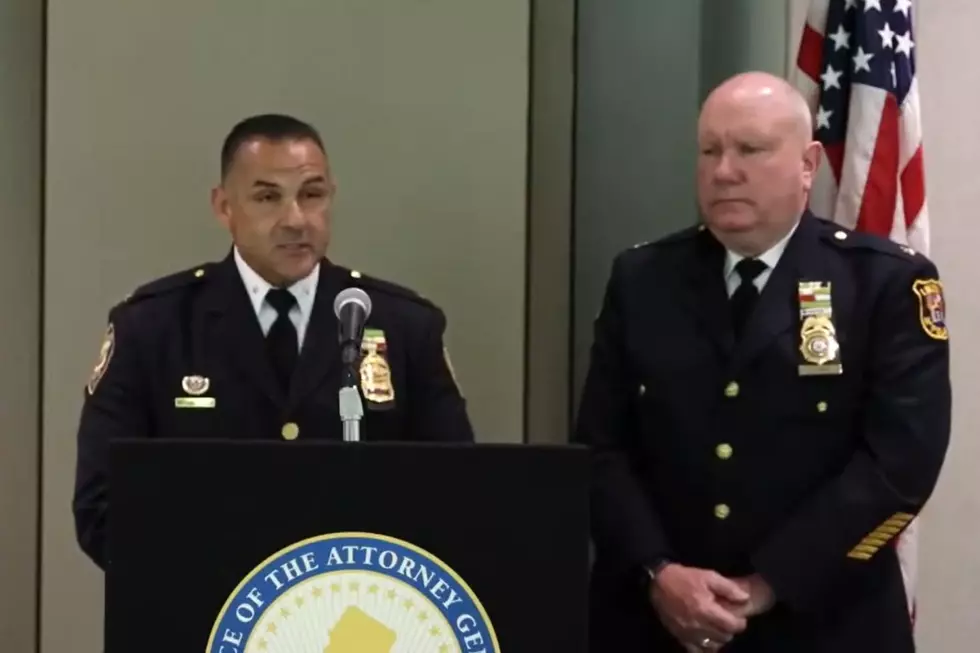
Stockton Students Open Up About Mental Health in New Book
GALLOWAY — Stockton University's chapter of a national peer group has been writing some chapters itself, trying to change the conversation and reduce stigma about mental health.
The journey to publication for four Stockton students began in 2016, thanks to a biannual speaker series held by the college's Active Minds organization. Author Maggie Bertram appeared at one of these events, and sometime afterward, student and Active Minds member Kathleen Connelly followed Bertram on Facebook.
It was then that Connelly saw a post from Bertram asking for submissions for a new volume on mental health. Connelly recruited her friend Julie Coker and others to send their personal stories. Both Connelly and Coker have served as Stockton's Active Minds president.
The book published last fall is titled "Our Stories, Ourselves: Beating the Stigma of Mental Health in Colleges and Universities."
Coker's story, as told in the book, is relatable to many New Jerseyans: She realized the need to seek mental health treatment as a high school freshman in 2012, when her family lost their house in Superstorm Sandy.
"My therapists saved my life," Coker said, adding that although she is now 21, she can't forget how crucial therapy can be for minors. "I fell in love with mental health advocacy, education, and the ability to help others. In the book, I write about standing up for yourself and advocating for your needs."
Connelly, who graduated from Stockton last May with a degree in psychology and a concentration in mental health, began seeing a therapist even earlier in childhood — age 8 — after developing post-traumatic stress disorder from a vicious dog attack.
She later battled what is classified as an eating disorder not otherwise specified, which does not meet the clinical criteria for either anorexia or bulimia and is rarely discussed. She has more recently channeled her experiences into working as a crisis counselor.
"I was seeking somebody who had the same struggle, somebody whose story sounded like mine, and I couldn't find it. So maybe I was that person for somebody else, but I'll never know that," Connelly said, explaining how having her thoughts published for the first time was different from the ready-made engagement of one of her many public speaking appearances. "So that's kind of empowering, in a way."
Like Coker, Connelly was intrigued to observe her own change and growth as she went through the two-year writing process, from her initial submission through the editing phase and finally the finished version of the book.
Even though audience feedback for a written work can be hard to come by, these students (or former students) still know they are reaching people. A few years ago, Stockton began something called The Resiliency Project, a series of video interviews on mental health topics emailed out weekly to the student body.
When she was still on campus, Connelly said fellow students would come up to her, having seen her in a Resiliency Project video, and feel comfortable to talk more freely to her about their own issues.
"A lot of mental health issues come about in the college-age years, so we talk to them about that just in case they experience that or a friend experiences that, so they know that there's help out there, but there's also hope that — you have this thing, but it's not the end of the world," she said.
Late teen and early adult years can also be the time when a person is able to fully grasp problems that have built up since childhood, according to Coker, who was bullied as an adolescent and struggled with depression and suicidal ideation. She said parents can take a more active role in their child's mental health — if they know how.
"Parents don't know how you really feel, but talking to them is difficult. I hope that parents read my story and become more supportive of their children's needs," Coker said. "I hope that my story can encourage change in how people view mental health issues and treatment, and that everyone learns that recovery is possible with the right support."
For more on Active Minds' mission in New Jersey and across the United States, visit activeminds.org.
Patrick Lavery is Senior Producer of Morning News and Special Programming for New Jersey 101.5, and is lead reporter and substitute anchor for "New Jersey's First News." Follow him on Twitter @plavery1015 or email patrick.lavery@townsquaremedia.com.
More From SoJO 104.9 FM










